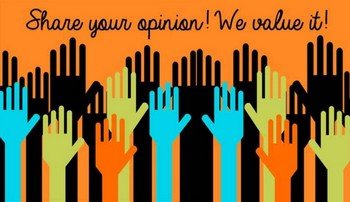Escape the “Self Esteem” Trap! Today!
 |
![]() So called “self-esteem” is a fallacy, a racket invented by what I call the “Self Esteem MAFIA” ~Rex. . . designed to make you feel inadequate so you will buy their crappy books, videos and seminars–and as such things are almost guaranteed not to work, it is highly likely that you will blame yourself therefore feeling even more inadequate, and buying more crappy books, videos and seminars that don’t work. And the beat goes on . . .
So called “self-esteem” is a fallacy, a racket invented by what I call the “Self Esteem MAFIA” ~Rex. . . designed to make you feel inadequate so you will buy their crappy books, videos and seminars–and as such things are almost guaranteed not to work, it is highly likely that you will blame yourself therefore feeling even more inadequate, and buying more crappy books, videos and seminars that don’t work. And the beat goes on . . .
I am going to show you how to begin doing something real that you can do about your feelings of low self-esteem today, right now, that will make a big difference in your life if you apply it. It will make an even bigger difference if this surprises, delights and turns you on so you are motivated to pursue REBT in a more depth way.
THE PROBLEM: So called self-esteem is usually “conditional.” That means, you tend to make good feelings about yourself dependent upon some external condition or other such as physical appearance, profession, job performance, social status, personal and professional achievement. So, I many love and feel good about myself if I am lucky enough to be physically attractive (according to some arbitrary and changing social standards). I may think of myself as a “beautiful person” and feel very good as a result. Which is fine so far as it goes. The problem is that nothing in the universe is static, and is I inevitably age and my youthful beauty fades—which it will—I may not feel so good about myself; because I no longer look beautiful, I am no longer a “beautiful person” and thus no longer an adequate or OK person. If I believe that it is terrible not to be a beautiful person, I may feel even worse about myself. In the extreme, this can lead to clinical depression and anxiety and worse given the phony-baloney mis-diagnosis of “chronic low self-esteem.”
The same is true about any other attribute, quality, marker-event or condition that you hang your self-esteem on. I am a successful person only so long as I keep closing deals at work. When I stop being able to close deals—which will probably be the case, at least to some extent, sooner or later—I may not feel so good. Naturally, it doesn’t feel very good to fall short of some performance expectation, however it feels much worse if I believe that in doing so, I label myself as a “failure” or the terribly cruel, self-flagellation modern term a “loser.” To counteract this, we can being thinking of a failure as disappointing and unfortunate, but (1) not the end of the world, and (2) as not affecting our “essential self.”
THE SOLUTION: Begin to practice what Dr. Ellis called USA, UOA, ULA; Unconditional Self Acceptance, Unconditional Other Acceptance and Unconditional Life Acceptance. In other words, you simply begin (right now, today) to accept yourself unconditionally. That is, you stubbornly refuse to equate your performance to your essential self. You begin “translating” your old way of thinking along the lines of: Because I failed the test, that does not make me a failure. Because I am losing my youthful good looks, that does not make me an unattractive person. Because I lost the game, that does not make me a loser. And so on.
 |
 |
HOW: Immediately, now, today STOP calling your dear, sweet self names, stop over-generalizing, stop labeling. When you are tempted to say I am a failure (or little Johnny is a failure, etc.) translate that to, I failed the exam, which does not make me a failure. Now, what can I do about it to improve my performance in future?
We suggest that the easiest way to accomplish this is to choose a concept of self that is resistant to what Dr. Ellis called “rating” or “downing.” Philosophers and scientists have been arguing about the nature of self for millennium and are probably no closer to determining exactly what the “self” is. Some people who do credible science and philosophy believe the self to be some kind of illusion. I doubt we will solve the debate or this “hard problem” any time soon. That being the case, what I think that means is that within rational, sane parameters, you get to choose whatever concept of self you prefer. That being the case, choose one that is difficult or impossible to rate. Some possibilities, the proverbial “98 cents worth of chemicals,” love, consciousness, a bundle of synaptic responses, an “cloud” of dancing atomic and sub-atomic processes, a system of conditioned responses, and so on. From our perspective, we don’t really care what your concept of self is so long as it resists “rating.”
 |
 |
For example, my 98 cents worth of chemicals is identical to your 98 cents worth of chemicals which is identical to Joe Sixpack’s 98 cents worth of chemicals, even (OMG!) Hitler’s 98 cents worth of chemicals. Adolf Hitler did despicable, horrific destructively anti-social things, but sorry to say, he was working with the same 98 cents work of chemical as you and I are. In other words, our essential selves consist of the same “stuff.” So do you not say “My 98 cents worth of chemicals are better (or worse) than your 98 cents worth of chemicals” as such concepts are semantically null. There is no good or bad 98 cents worth of chemicals, just 98 cents worth of chemicals. And these 98 cents worth of chemicals do not become more or valuable or worthy by what I do or do not do, by what I achieve or do not achieve, by what kind of house I live in, by how many books I have read or written or by whether they sell well or not.
Within specific rational limits, feel free to
(1) judge and evaluate your performance, your behavior, your actions and
(2) work your ass off to achieve “task-perfection” but do not judge your dear, sweet self and do not equate your performance or behavior or actions with your dear, sweet self.
WE RECOMMEND : The words of that brilliant, 20th Century philosopher, Popeye the Sailor-man who frequently said
![]() I yam what I yam and dats all what I yam.
I yam what I yam and dats all what I yam.

BOTTOM LINE: If you want to start feeling better about yourself, right now, today, STOP calling your dear, sweet self names. And as long as you are doing so, please stop calling the dear, sweet selves of others names. It will change your life. Honest!
We would love to hear your reactions, comments and personal experiences. If you try this, please let us know how you are doing. There are many good books which can help including “A Guide to Rational Living,” “How to stubbornly and “The Myth of Self Esteem” all by Dr. Ells.
 |
 |
 |
 |
 |
 |
f there is anything I can do for you, do not hesitate to contact me.
~Rex
|
PLEASE ADD YOUR COMMENTS, QUESTIONS, |
![]()
How useful was this post?
Click on a star to rate it!
Average rating 5 / 5. Vote count: 4
No votes so far! Be the first to rate this post.
Originally posted 2017-03-21 21:08:40.
Contact: Rex@REBTinfo.com
- Is “indifference” a better option than “strong preference”? - Wed 25 Feb 26
- New REBT Info facebook group - Tue 24 Feb 26
- Beat the Holiday Bloat - Tue 24 Feb 26
Tags: acceptance, downing, labeling, name calling, rating, self-acceptance, self-esteem, ULA, unconditional life acceptance, unconditional other acceptance, unconditional self acceptance, UOA, USA
Search this site
Sticky Posts
Regular Columns & Features
Categories
USEFUL LINKS
Amazon Associate Member
Rex Alexander and REBT Info are participants in the Amazon Services LLC Associates Program, an affiliate advertising program designed to provide a means for sites to earn advertising fees by advertising and linking to amazon.com.
Disclosure
When you buy items using the links on this website, we may get a small commission which keeps me in coffee, which keeps me working, which keeps me providing valuable content for you. Thank you for your continuing support of REBT Info.com. ~Rex
TOS / Terms of Service
Pretty basic stuff: No fussing, no fighting, no cussing, no spamming, no scamming, no blaming, no flaming, no hating, no bating, no trolling, no personal attacks. No pornography (Damn!). The Golden Rule applies. Focus on issues, ideas and principles rather than on personalities and you will fit right in. Please keep your contributions friendly and polite, treat your fellow members and readers with respect and all will be well.
All content and information submitted become the property of REBT Info (REBTinfo.com)
Privacy Policy
PRIVACY POLICY
We at REBT Info value your privacy. Your personal information is secure with us. Secure server software (SSL) encrypts all information you enter before it is sent to us, and all of the customer data we collect is protected against unauthorized access.
We WILL NOT sell, rent, distribute or otherwise share your personal information, including e-mail address, to or with anyone for any reason (except in the extremely rare, unlikely case of demands by duly authorized law enforcement acting strictly in accord with due process).
For more information, please read the long version
Copyright
Copyright © 2012-2026 by Rex Alexander dba REBT Info / http://REBTinfo.com.
All rights reserved. The content of this website or any portion thereof may not be reproduced or used in any manner whatsoever
without the express written permission of the publisher except for the use of brief quotations in a book review.Disclaimer
This website, REBTinfo.com, and others under the REBT Info family are for education, information and entertainment purposes only; are not intended as, nor should be regarded as medical or psychiatric diagnosis, advice or treatment.
By accessing this blog you understand and agree to these conditions, as well as to the other Terms of Service / TOS posted, and which may be updated and amended from time-to-time.
Agreement
By accessing this website blog and related media, you affirm that you have read, understand and agree to our Terms of Service / TOS which may be updated and amended from time-to-time.
This is a public blog
Anything you post may be viewed by the public. Therefore, do not post anything you wish to remain private.

